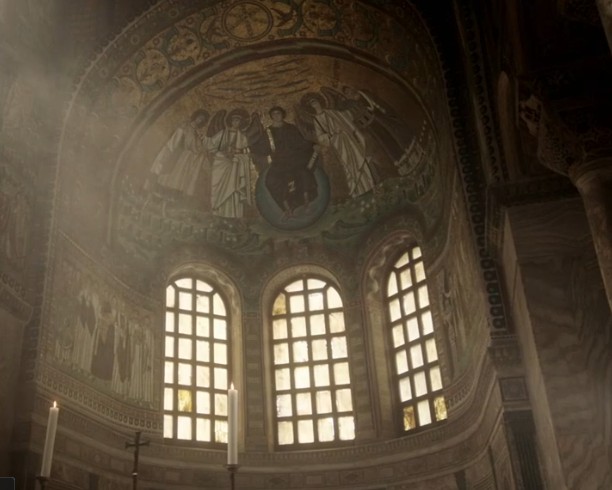"There are gods, gods everywhere.
"神灵遍地
And nowhere left to put my feet."
多得让我无法下脚"
Those are the words of a 12th century Indian poet,
这句话出自十二世纪的一位印度诗人
as he cast his eyes on the mass of religious images
在他周围环绕着众多宗教意象
that surrounded him.
令他目不暇接
Several centuries on, you can still see what he meant.
数个世纪过去 你仍能对此感同身受
Coming to a place I'm not so familiar with, like India,
来到一个我不熟悉的地方 像是印度
helps to open my eyes
通常能让我更加意识到
to the fact that religious art gets everywhere.
宗教艺术随处可见
You don't only find it in churches, temples and galleries.
它们不仅仅存在于教堂 寺庙或画廊中
Religion has always brought out the artfulness in people,
宗教总能激发人们的艺术细胞
on the body, in the home, and on the street.
这体现在人的身体上 家里甚至是街上
And it can seem quite simple,
有时看起来非常简单
whether it's a matter of religious awe,
不论是以对宗教的崇敬为目的
or a way of satisfying our curiosity
还是为了满足我们的好奇心
by peeking into the hidden world of the divine.
让我们得以一窥隐秘圣域
But if we go a bit deeper
但如果我们再深入一点

and try to explore
想要去探寻
how these religious images actually work...
这些宗教画作到底有何深意
It turns out to be a little harder than you might think.
就会发现这比想象的要困难一些
It was 1906 when the artist-explorer
1906年 艺术探险家
Christiana Herringham
克里斯蒂安娜.赫林厄姆
was trekking through this remote part of central India.
跋山涉水来到印度中部这片偏远地区
She had been intrigued by stories of an ancient religious site
她被一个故事中藏于崇山峻岭中的宗教圣地
long hidden in the hills.
深深地吸引了
And, after weeks of very rough travel,
经过几周的艰难跋涉
she was astounded by what she saw.
她被所见的景象所震撼了
Spanning an entire rock face
覆盖这整个岩壁的
were the Ajanta Caves.
就是阿旃陀石窟
This network of Buddhist prayer holes and monasteries
这成片的佛殿与僧房
was begun around 200 BC
始建于公元前二世纪
and added to over the centuries.
并在之后几百年间不断扩建












